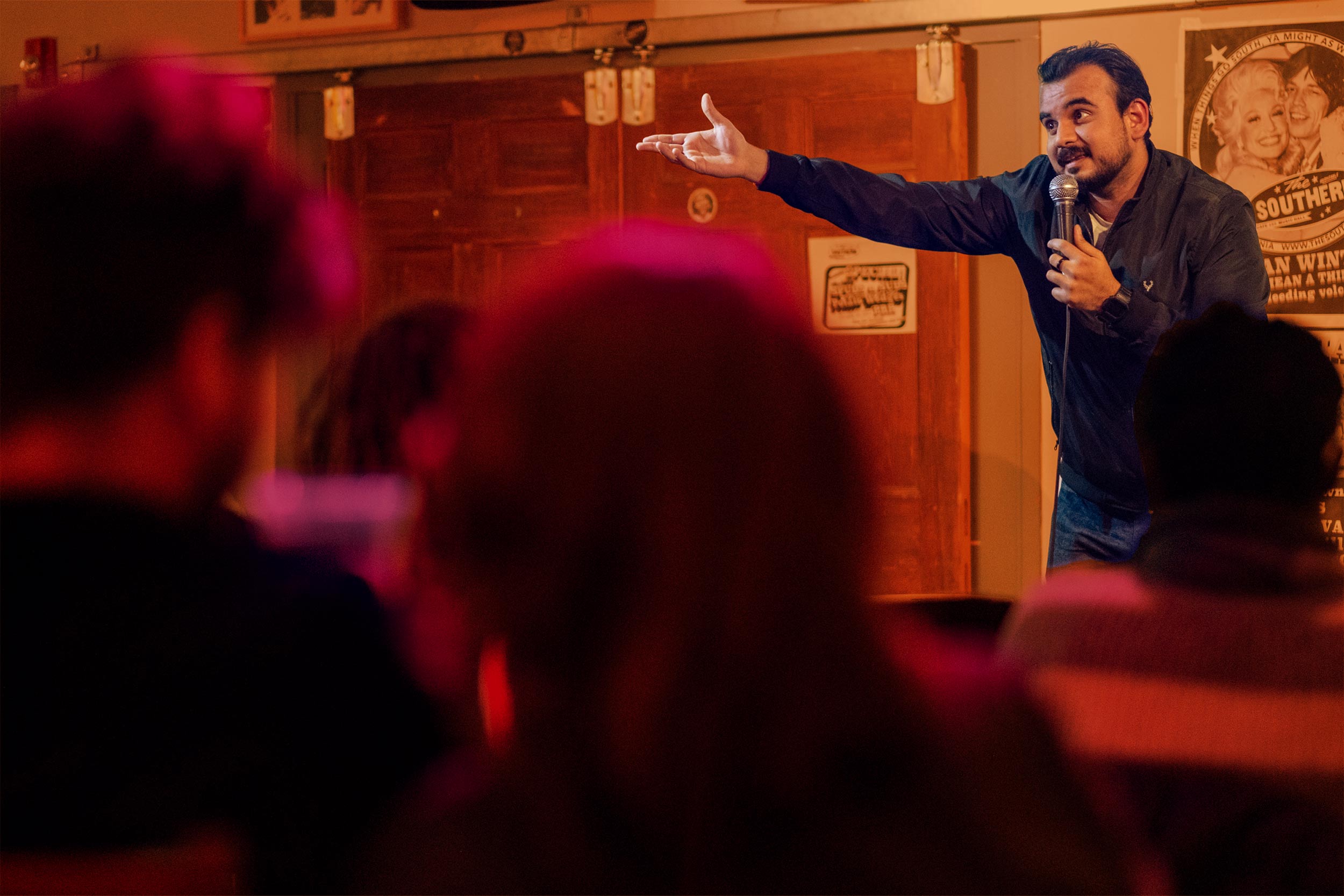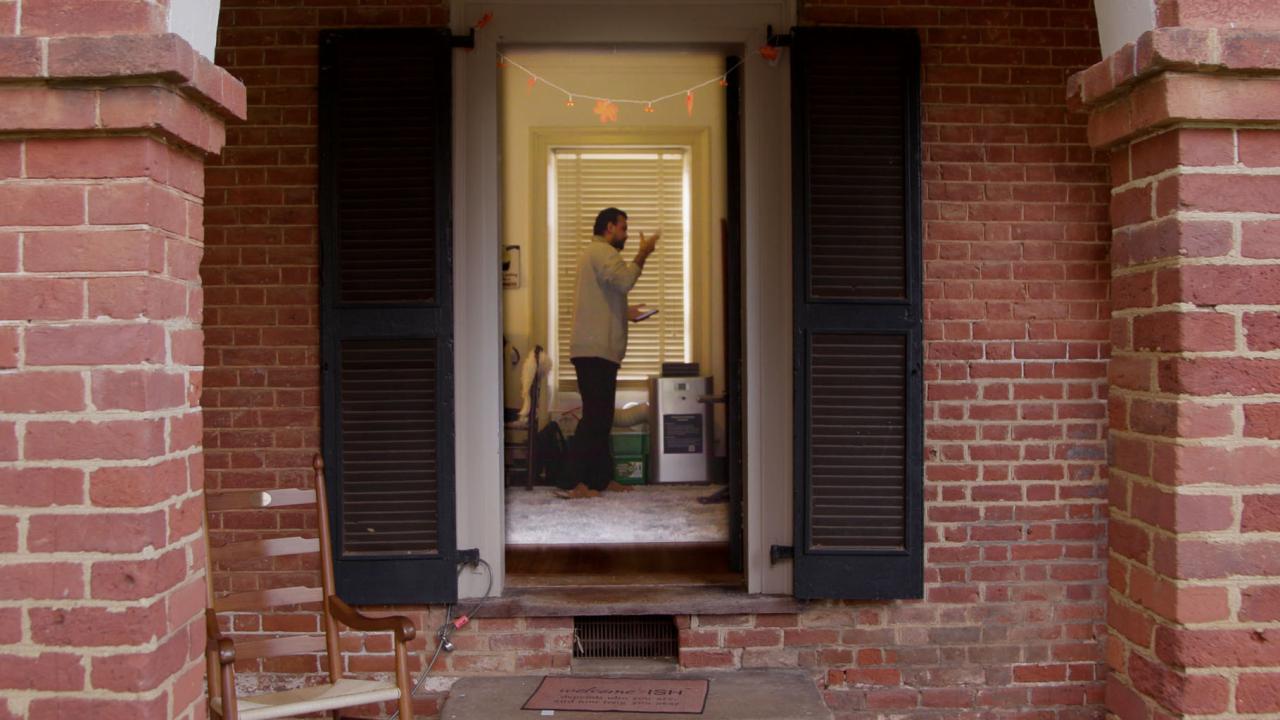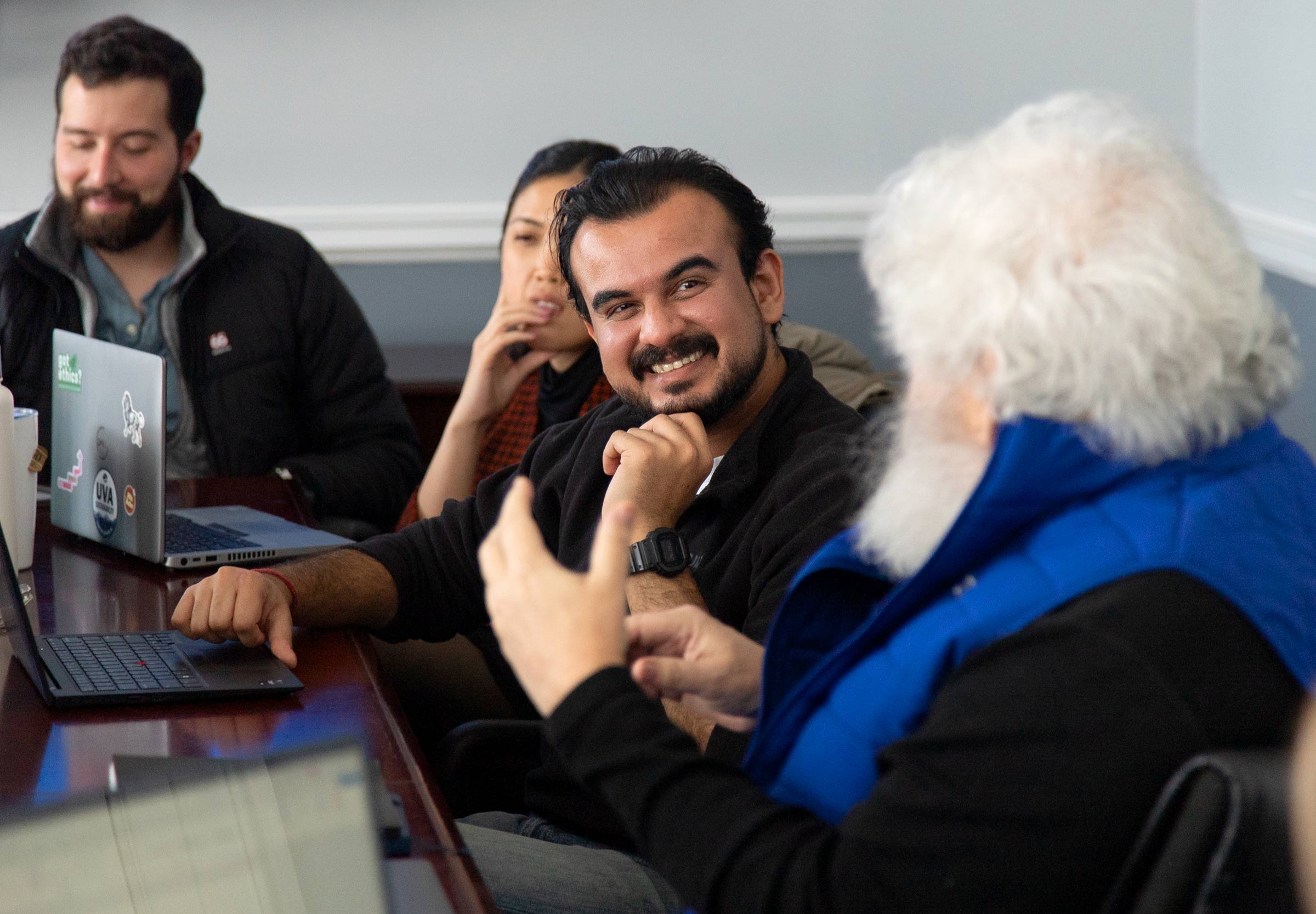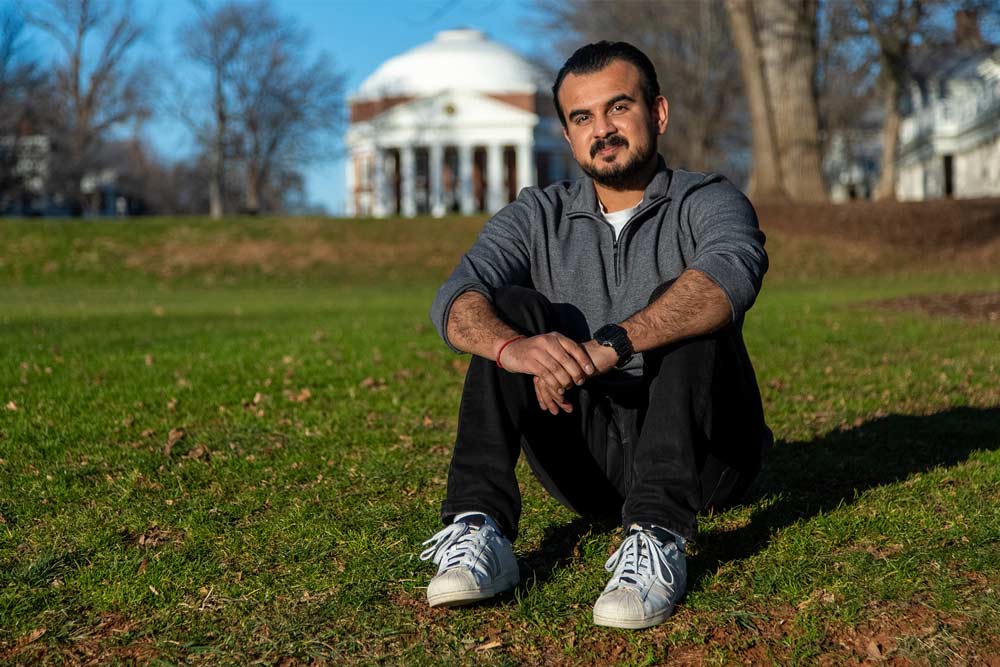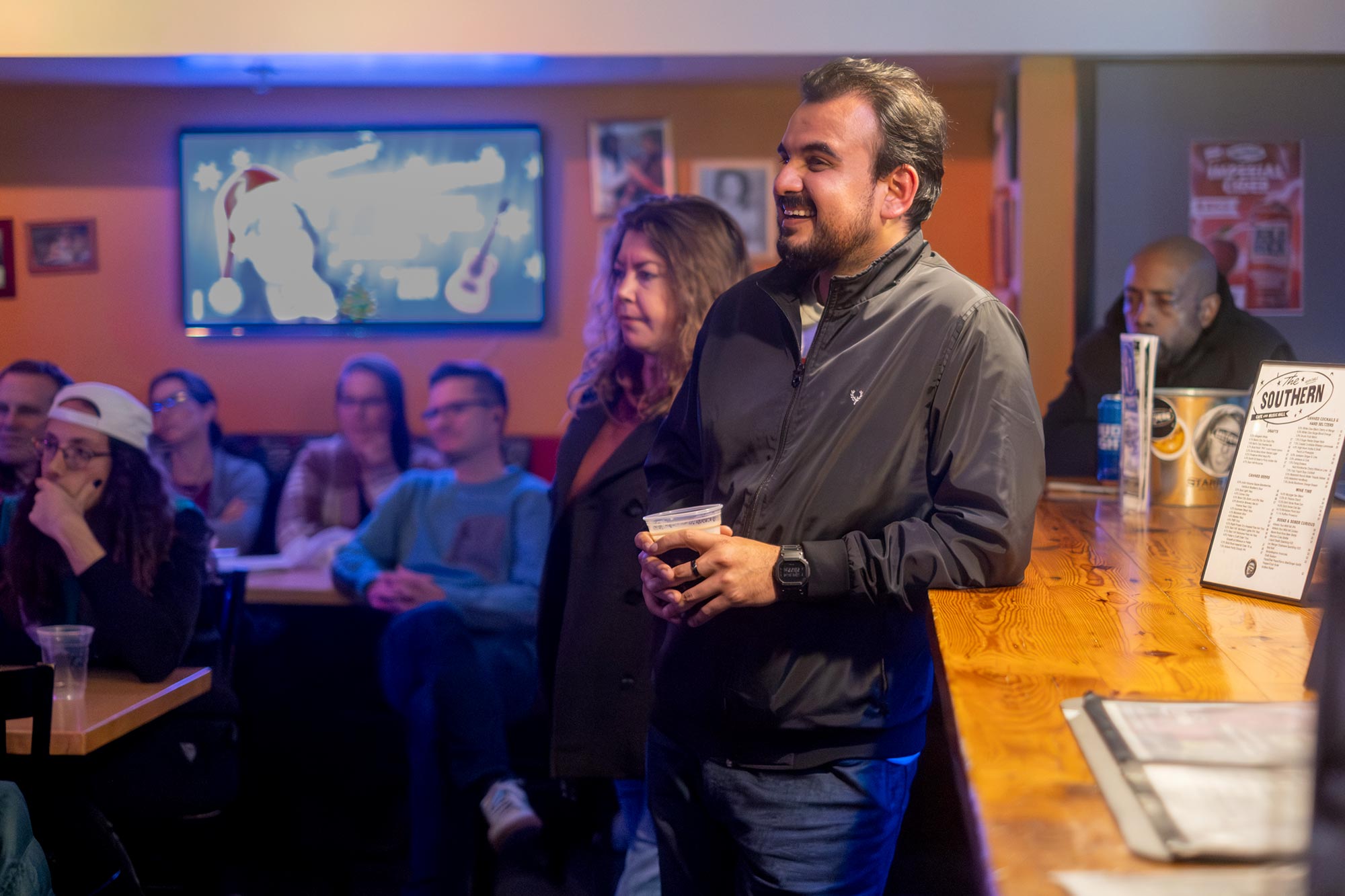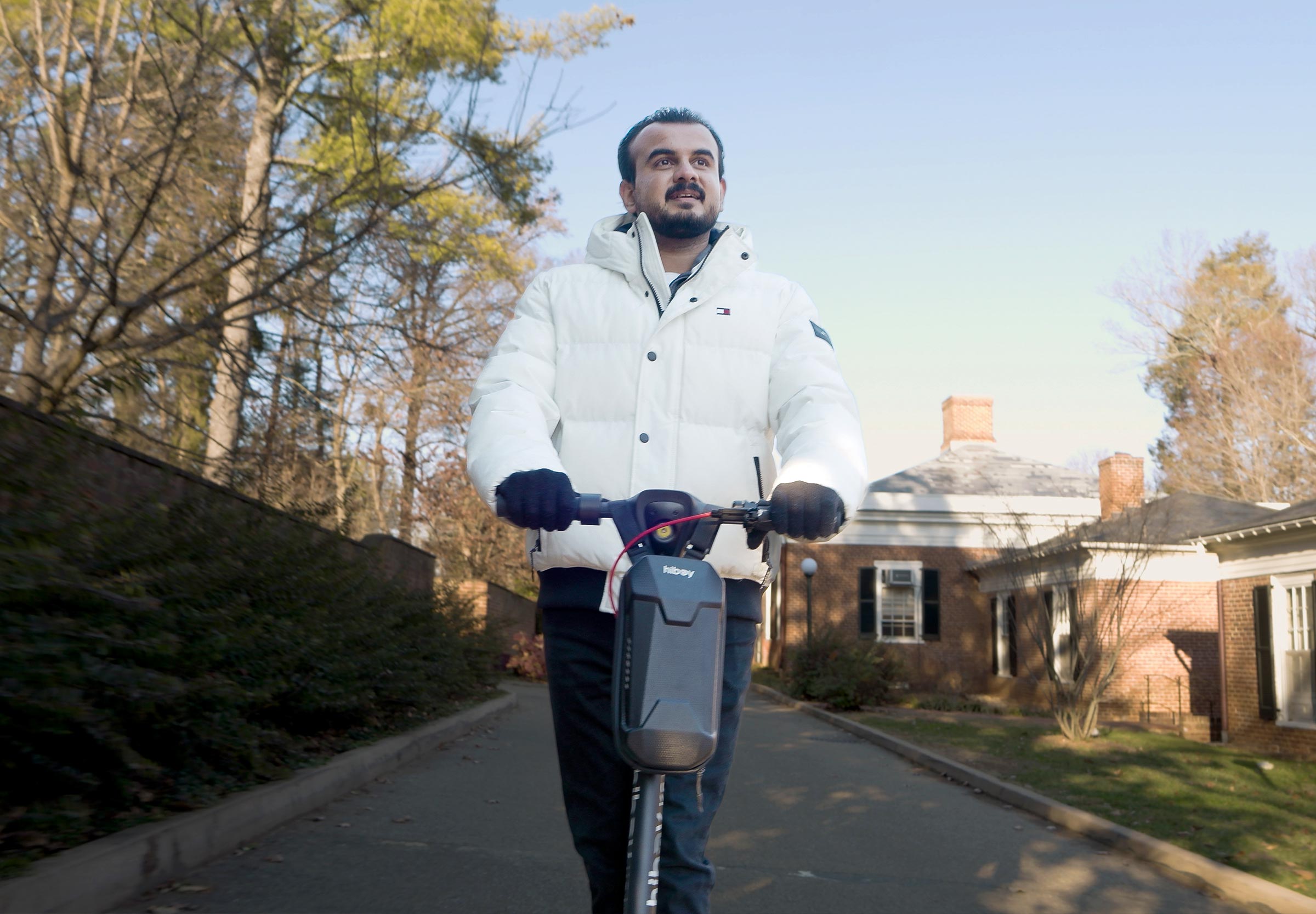It’s a passion that began on a whim eight years when he was a student at the University of Bath in England. A friend of his, appreciating Kulkarni’s natural ability to make people laugh, signed him up to perform as part of a talent show.
“I did well,” Kulkarni said, “and the manager of the venue came up to me and asked, ‘Can you come back next Wednesday?’ I said, ‘OK, sure,’ and I just kept doing it.”
Soon, he was dominating open mic nights back in his hometown of Mumbai, India, and earning invitations to perform at private events and to judge comedy competitions. During the 2017-18 academic year, at the school’s request, he created and delivered a course on stand-up for students at the Indian Institute of Technology Bombay, covering topics such as joke writing and stage presence.
Mention of such accomplishments piqued the curiosity of those interviewing Kulkarni upon admission to Darden, doctorate program director Andrew Wicks said.
The young man in front of them didn’t just have a résumé highlighted by academic excellence and noteworthy professional experience; he had a proven record of delivering under a unique kind of pressure.
That, Wicks said, felt like a skill that is transferrable to succeeding in higher education.
“In stand-up comedy, to me, if you can’t be comfortable in your own skin in front of other people in a potentially awkward situation, you are going to bomb,” said Wicks, a UVA alumnus and veteran professor at his alma mater. “If you don’t have that ability to get up there and be able to roll with the punches and have that intellectual agility, curiosity and comfort level with who you are, I don’t think you’re going to be very successful.
“It’s not the reason he got into the program, but it’s definitely something that made us more interested in him, especially after we got a chance to talk to him.
“It wasn’t just a thing we read on his CV; you could kind of see it in how he presents himself.”
Being the Idiot
Whether on stage or in the classroom, Kulkarni lives by the same approach: Don’t be afraid to be the idiot. The mentality is inspired by Simon Sinek, a popular motivational speaker and author who often preaches about the communal benefits of asking questions.
“If you ask a question that you think is stupid,” Kulkarni said, echoing Sinek’s philosophy, “like, six people around you might have the same question.”
Prior to his stand-up career, Kulkarni, an only child, said he often shied away from the spotlight in any setting. He was constantly fearful of saying the wrong thing and having to deal with the consequences.
